Paradigm shift in governing the migration crisis
A two-day workshop of the National Center for Competence in Research "NCCR – on the Move" brought together twelve experts amongst others from universities of migrant origin and transit countries, including Lebanon, Turkey, Nigeria, as well as from the UN. At the heart of the debate was how governing migration has shifted to the global level and towards including civil society, private sector and migrants.
Migration has become the policy area most actively promoted at the UN, as the New York Declaration of 19 September 2016 has shown. For the first time in UN history, a General Assembly has been devoted to migrants and refugees. The Declaration also marks – since the 1951s Refugee Convention – the first instrument, which was adopted by all 193 UN Member States by consensus. In that Declaration, migration is linked to related policy categories, including human rights, climate change, education, investment and trade. With this landmark declaration, a foundation has been laid towards a more comprehensive and official recognition of UN work in this area testifying to migration moving from an embedded policy domain to a self-standing regime. Focus of the Declaration is post-humanitarian: it seeks to relieve migratory root causes and to provide for sustainable livelihood perspectives for migrants rather than to scale up emergency relief.
A two-day workshop on 16 and 17 February at the University of Bern examined the reasons behind that normative change, focusing on how migrant protection has moved to the forefront of international law and policy instead of sovereignty and safety which had dominated the migration governance discourse so far. The workshop was organized by the National Center for Competence in Research "NCCR – on the Move" by PD Dr. Marion Panizzon of the Institute of Public Law.
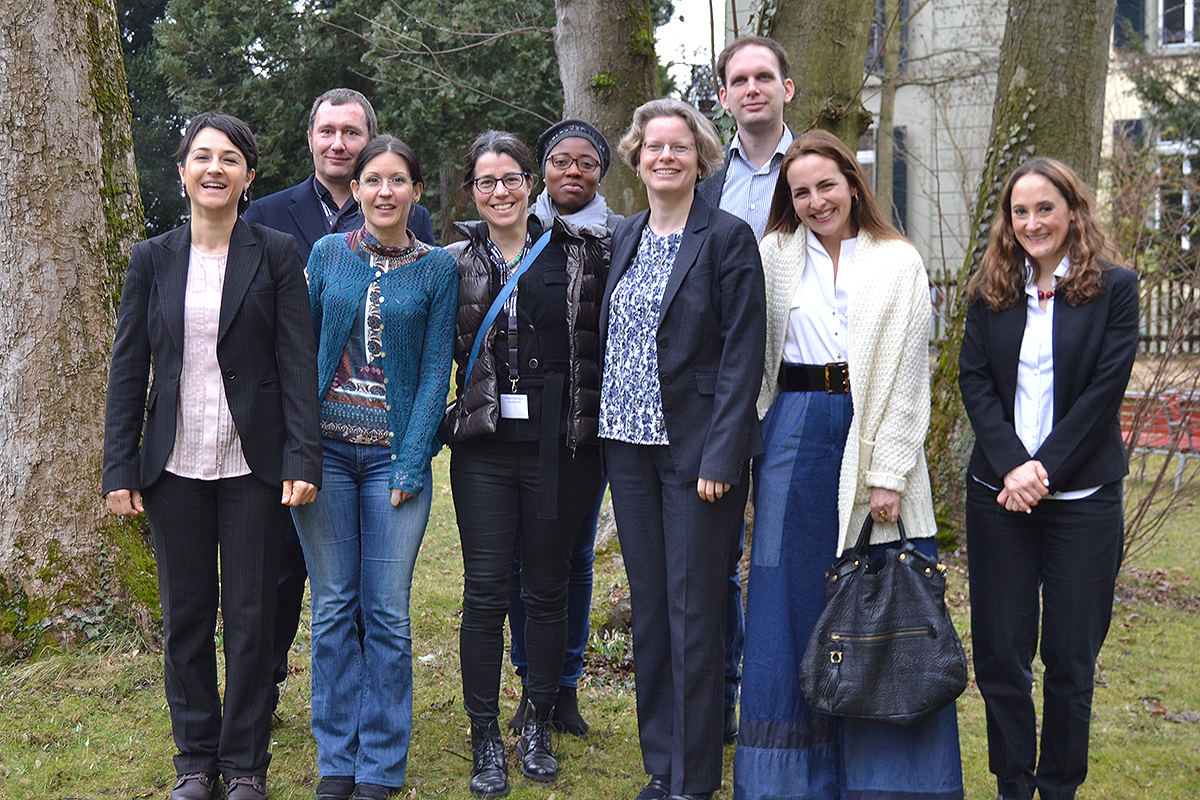
Advantage and Disadvantages of Agreements
The workshop participants worked with case studies from Europe, Africa, Asia and America to assess the gains and risks of regulating migration through multiple layers of norms and actors – global, regional and local. The theoretical frame focused on the concept of multi-layered governance. A scope of study was the diffusion of trans-regional cooperation such as the one linking the EU to ECOWAS (Economic Community of West African States) through which smuggling and trafficking of persons shall be combatted. Amanda Bisong from University of Nigeria, Nsukka, Nigeria, explained how this led to an intra-regional cooperation within ECOWAS, harmonizing refugee and asylum policy. Nonetheless, the national layer of immigration law keeps the upper hand: "The bilateral agreements of certain West-African States with post-colonial countries like France serve to impede the region from negotiating trade agreements with opportunities for labor mobility in exchange for cooperation on migration." The way it is now, bilateral agreements undermine trans- and intra-regionalism.
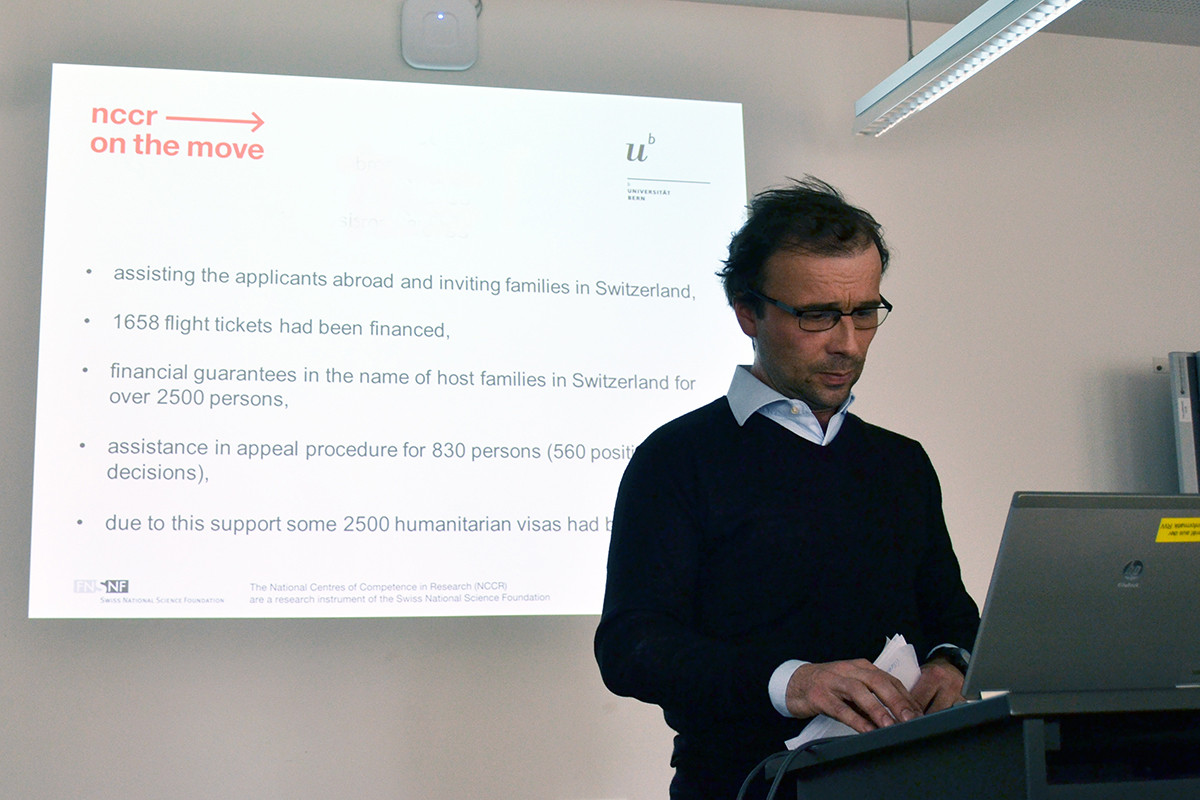
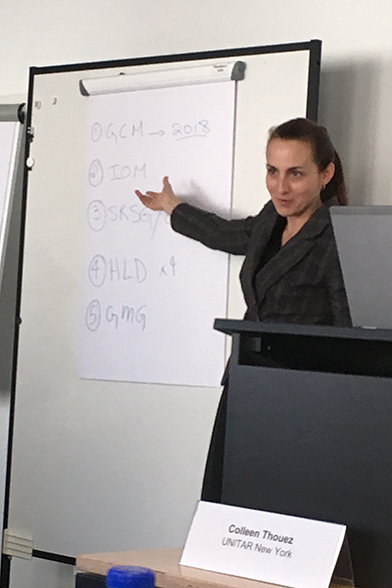
Seçil Pacaci from the Michigan State University described in this context, how regional actors, like Turkey or other EU Member States with common borders to presumably safe third countries, like Bulgaria or Greece, attempted to instrumentalise UN institutions, like UNHCR to exert pressure on sovereignty-driven and security-biased EU external migration policies. Turkey, according to Pacaci, politicizes the refugee crisis in the region to negotiate better accession conditions with the EU or further relaxations in Schengen visa policy – as a compensation for taking in or resettling those refugees which the EU does not want. EU migration policy could instead, as discussed in the context of Dublin IV reforms, deliver more on solidarity, including through fair-sharing among EU Member States. This so-called compensatory governance is also a topic in Jordan and Lebanon: Both states have trade agreements with the EU and US to allow for goods which have been manufactured with at least 25% refugee employment to access EU under relaxed rules of origin. Such deals improve the livelihoods of certain refugees and compensate for the high economic costs of intake of refugees in those countries, but as Tamirace Fakhoury from the Lebanese American University showed, fundamental labor standards of the ILO and other human rights remain underserviced. It seems like the Jordan/Lebanon Compacts are trans-regional deals which stand in conflict with the global UN-level and the ILO Standards, rights protection in the UN Pacts and the UNCHR’s protection requirements.
Finding flexible Solutions
As Stefan Rother (University of Freiburg) and Sandra Lavenex (University of Geneva) showed, the gains from multi-layered governance are more flexible decision-making structures, in particular involving non-state actors. One example is the Global Forum for Migration and Development (GMFD), which stands outside the UN, but whose impact as a venue for civil society is increasingly visible. It already succeeded in giving inputs from regional cooperation into formal decision-making processes on a national level. Including multiple actors and linking various layers invariably improves outcomes, including upgraded humanitarian intervention, the possibility to extent protection to particularly vulnerable migrants, and lifting labor standards.
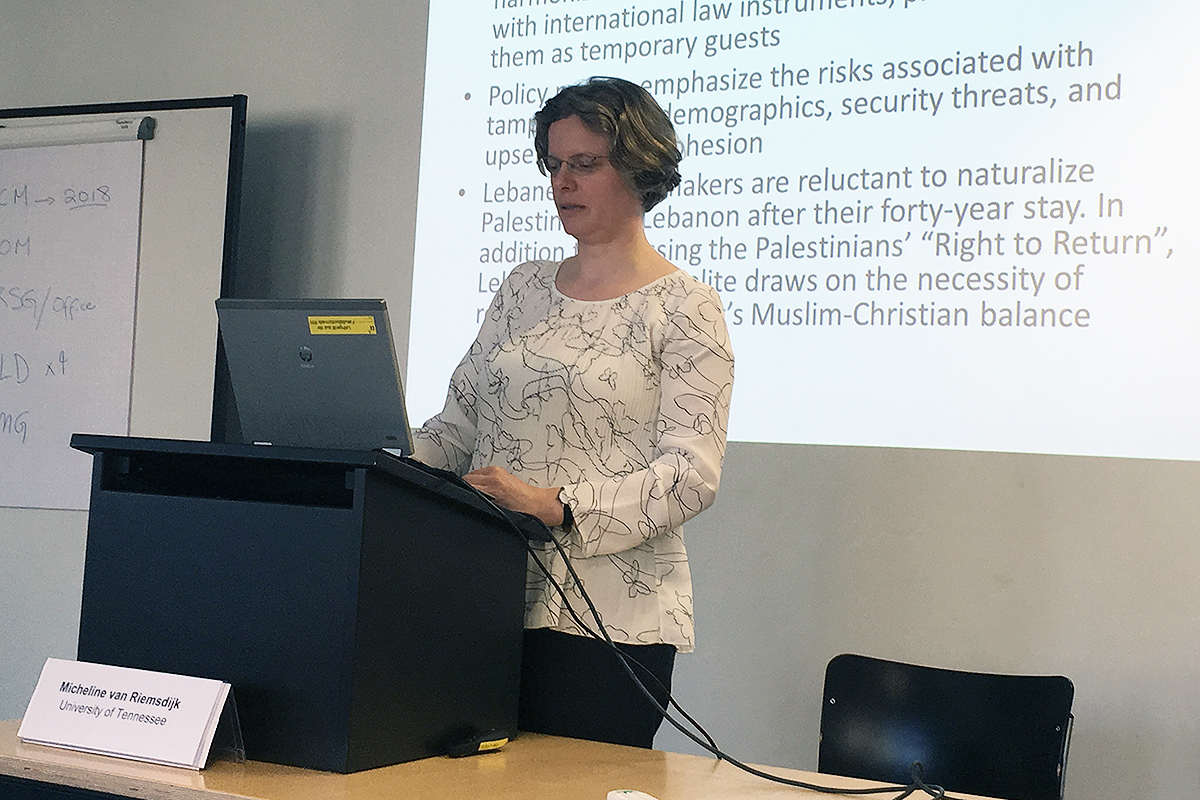
As Elisa Fornalè from the World Trade Institute University of Bern recalled, the Philippines used the Global Forum on Migration und Development (GFMD) to commit certain member states of the Association of South-East Asian Nations (ASEAN) – the regional layer – to bring their national labor and employment laws into coherence with ILO-Conventions’ labor standards. This "downloading" of global standards, as described by Sandra Lavenex from Geneva, is challenged by a couple of factors. In the case of non-democratic states like the Gulf States, which employ many migrant domestic workers from the Philippines, it is highly uncertain whether these standards can be employed, as Gabriela Marti, University of London, pointed out.
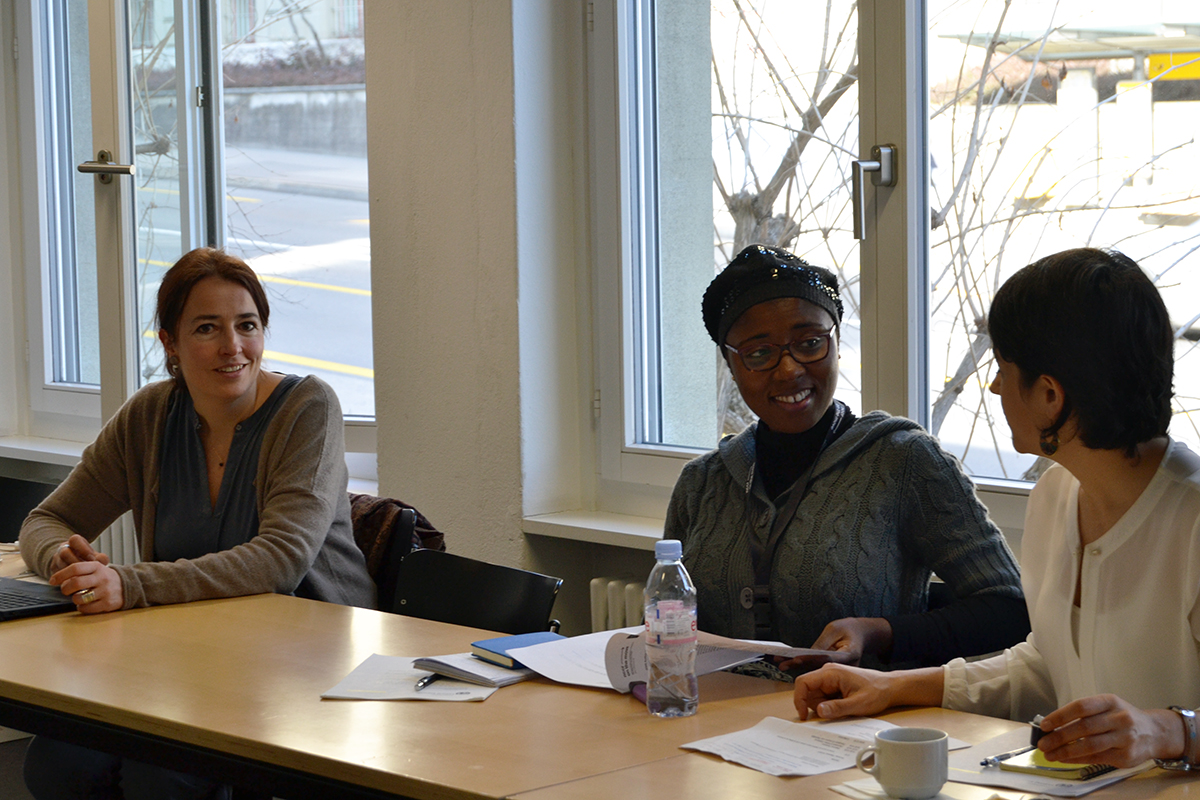
How can policy-makers in law and politics find solutions between global institutions, regions, bilateral trade agreements and national sovereignty? How can temporary protection be squared with sustainability? The workshop participants agreed that migration, through the New York Declaration, has gained momentum in foreign affairs. Further research work on global migration governance should focus on resolving the dilemma between the short-term humanitarian needs, and the work on long-term "post-humanitarian" perspective to which international migration law is equally committed to.
NCCR – on the Move
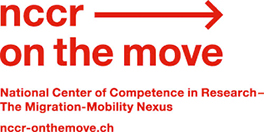
The National Center for Competence in Research "NCCR –on the Move" has been researching Themes around the Migration and Mobility since June 2014. Social, political, economic and legal science projects ask: What are today’s migration patterns and the interplay between migration and mobility?
Overarching scientific goal of "NCCR –on the Move", is to create a comprehensive inter-disciplinary frame to increase the understanding about transforming patterns and mechanisms of migration and mobility in Switzerland and internationally. Lead by the University of Neuchatel, 19 research groups work at 8 Swiss Universities: Neuchatel, Basel, Bern, Fribourg, Geneva, Lausanne, Luzern und Zürich. At the University of Bern (2014-2018) there are two law-based projects led by Prof. Dr. Alberto Achermann and Prof. Dr. Jörg Künzli.
About the author
Marion Panizzon, PD Dr. iur. LL.M. is a lawyer and Senior Researcher at the Institute for Public of the University of Bern, responsible for the project "Transformations of International Migration Law” of “NCCR – on the Move".